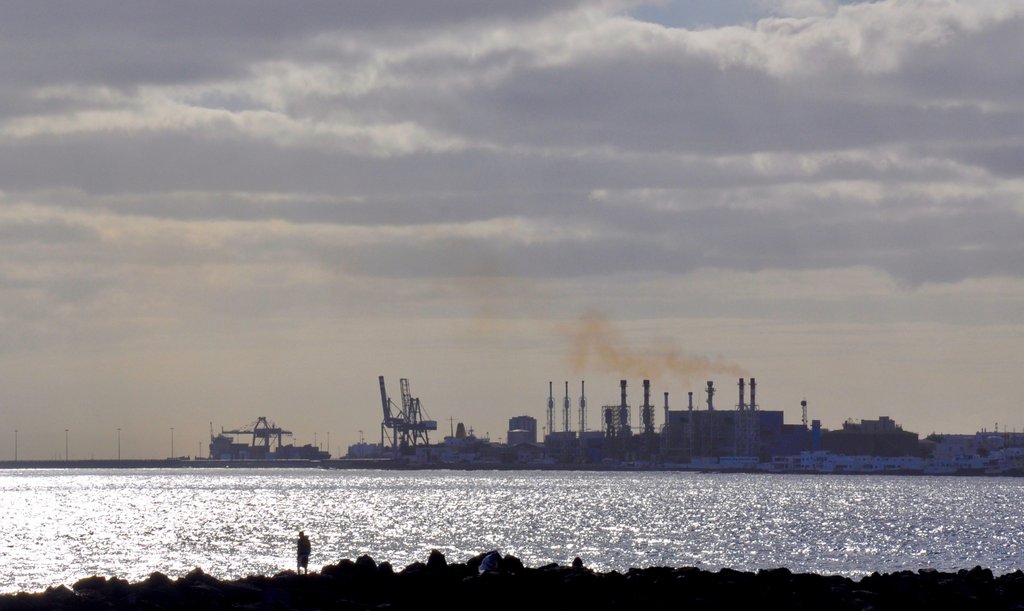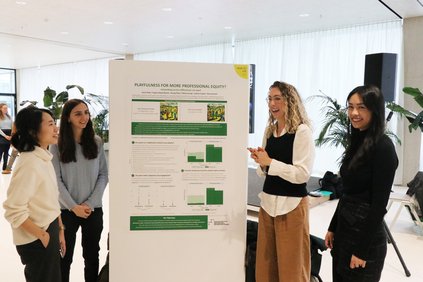Background - 13.11.2023 - 09:59
Conference "Zeichenwende": Business as usual? The Anthropocene and us.
Conference on Aesthetics and the Anthropocene questioned how we deal with climate change, species extinction, and other phenomena of the ecological mega-crisis of our time. By Jörg Metelmann and Daniel Cuonz.

The conference "Zeichenwende. Aesthetics and the Anthropocene" questioned how we deal with climate change, species extinction and other phenomena of the ecological mega-crisis of our time. Image: Ckle / photocase.com
Something very fundamental is changing, and not just as a result of the geopolitical conflicts that have been sending images of war and suffering to Western prosperity zones on a daily basis since 24 February 2022. In this country, too, a space of experience is growing in which everyone can realise what climate change, species extinction and overexploitation mean: Our rivers and lakes are far too warm and the whitefish in Lake Constance can no longer be fished because they are threatened with extinction.
Since the beginning of the millennium, the human influence on the climate and environment has been called the "Anthropocene", i.e. a geological era characterised by human intervention in the earth system. For geology, the epoch begins with the deposition of radioactive particles since 1950, for Cultural Studies sometimes with industrialisation, sometimes with the slave-plantation economy (“Plantatianocene”), and sometimes with the accelerated consumer society. In any case, the term "Anthropocene" is provocative, because in its radical interpretation, there is no longer any other, no outside of humanity - everything we do is us and it comes back to us. The provocation here is that while we used to feel that we were standing on a stable space-time stage in order to perform our socially learnt and culturally consolidated roles, the stage itself is now in motion, or as Bruno Latour put it: the orchestra pit is filling up, the stage is burning, the roof is coming down (floods, fires, storms, as in Greece, Italy and Canada this year).
But what are the consequences of this paradigm shift, of this change? Is it just another "turn" (like the "linguistic turn", the "spatial turn", the "affective turn") that shifts descriptions towards anthropocene categories such as entanglements (of all living beings) and deep time? Or does it really signify a new beginning, because the object of its description is so large and ultimately incomprehensible that one would have to start with the fragility of perceptibilities before arriving at narratives and concepts for this colossal context? To put it bluntly: start with the senses instead of unanimously focusing on great meaning!
Relevance kills aesthetics
In this "relevance kills aesthetics" understanding, the Frankfurt-based German literature scholar Heinz Drügh argued against a facile consternation and in favour of a radical contemporaneity of representation in art, which can also and above all capture the deep entanglement of consumers in the extractive world of commodities and the associated enjoyment. Sophia Prinz, a design theorist from Zurich, delved deeper into this aspect with the dual of extractivism and romanticism as the two poles of design thinking over the last 200 years: The cotton ploughed by slaves, she said, was printed in its processed final form in the showroom of western metropolises with exotic motifs without plantation, pleasing without injustice and pain.
In the spirit of this decolonising mission, many statements (such as that of the Berlin curator Helena Romakin) pleaded for de-ordering and the reversal of hierarchies, such as the outlawing of discovery (which is always also appropriative) and the respect for remaining and preserving. The threat to biodiversity in our immediate neighbourhood came up at several points during the conference.
Another focal point of the discussions was Buddhism (especially in the dialogue between Zen master Christian Dillo and economist Martin Kolmar) with its radially equalising description of the world in meditative space: subject and object are not separate, but are connected in their diversity and can only be experienced as such, as an overall context. Against this background of a sensory reality, "suffering" (Sanskrit: duhkha, "hard to bear") or the economically conceived "scarcity", as Martin Kolmar translated it, can be experienced in a completely different way. In his reflection on anthropocene loss narratives, the philosopher Andreas Hetzel from Hildesheim emphasised that this Buddhist worldview is one of the highlighted practices for really being able to think about bio-diversity as an interweaving of lives and supplemented it with an understanding of the "land" ethic of the much-cited Aldo Leopold as a special way of acting.
A conscious new beginning or business as usual?
So what to do? Business as usual, now as green investments? Or a conscious new beginning in the spirit of a post-extractivist way of life? From the point of view of the conceptual "turning point" under discussion, the answer is twofold: the end of the nature-culture divide opens up a great space of opportunity for recoding and reinventing life, which must be pursued with dedication and tenderness. At the same time, however, this opportunity is a challenge, the fear and loss of which can inhibit our energies and cause us to become bogged down in pettiness. The search movement between happy ending and "end of times" (Welzer) can only be a common and collective one, as the conference showed very well - not least by the fact that it was practised in a polyphonic, transdisciplinary discussion.
The conference "Zeichenwende. Aesthetics and the Anthropocene" took place on 9/10 November 2023, organised by Jörg Metelmann and Daniel Cuonz from the School of Humanities and Social Sciences as a report, article, piece on 125 years of HSG.
More articles from the same category
This could also be of interest to you
Discover our special topics



![[Translate to English:] Choix Goncourt de la Suisse | unisg.ch](https://www.unisg.ch/fileadmin/_processed_/b/a/csm_Choix_Concourt_de_la_Suisse_HT-Stibi-069_2110740678.jpg)












